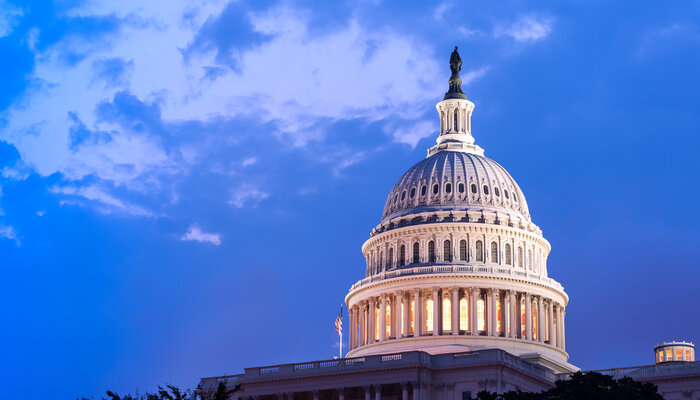In the wake of a series of ethics scandals involving Supreme Court justices, the Senate Judiciary Committee will consider a bill Thursday that would safeguard against corruption on the high court. With public opinion of the Court at historic lows, reform is urgently needed to restore faith in its impartiality.
Some opponents claim that reforms would be somehow unconstitutional. While Congress must respect the separation of powers and decisional independence of the justices, it has long exercised its constitutional power to regulate ethics in the Supreme Court. Congress must now take further action to rein in abuse of power in the high court. Our constitutional system of checks and balances requires it.
The list of recent unethical conduct by Supreme Court justices and members of their families is long. It includes repeated failures by Justices Clarence Thomas and Samuel Alito to disclose lavish gifts from billionaires with ties to right-wing legal organizations, failures by nearly all of the justices to recuse themselves from cases in which they had financial connections to the litigants, and justices’ spouses benefiting financially from law firms and nonprofit groups with business before the Court.
This brazenly unethical conduct, and the justices’ years-long refusal to take voluntary steps to prevent further abuses, points to significant shortcomings in the longstanding statutory framework Congress has created to regulate Supreme Court ethics.
On Thursday, the Senate Judiciary Committee will hold a hearing on the Supreme Court Ethics, Recusal, and Transparency Act, which would require the Supreme Court to adopt a binding code of conduct and develop a process for enforcement. It would also require the Court to adopt rules requiring disclosure for gifts, travel, and income that are at least as rigorous as analogous House and Senate Rules. And it would strengthen recusal rules by, among other things, requiring a written explanation of recusal decisions and creating a mechanism for review of recusal requests.
As the history of congressional regulation of Supreme Court ethics makes clear, it is squarely within Congress’s constitutional power to ensure the integrity of a coequal branch by holding Supreme Court justices to high ethical standards. Since the founding, Congress has played a central role in regulating the ethical conduct of the justices, first by requiring them to take an oath written by Congress. Congress also sets the terms by which federal judges, including Supreme Court justices, retire and how they are compensated.
Since 1948, Congress has required the justices to recuse themselves from cases in certain circumstances, including in any proceeding in which their impartiality might reasonably be questioned. At the same time, the law does not provide a clear mechanism to challenge a justice’s failure to recuse, leaving a great deal of discretion in the hands of justices with conflicts of interest. As for disclosure, Congress has required the justices to disclose their financial holdings and regulated other sources of income since 1978, with increased transparency requirements around securities transactions enacted on a bipartisan basis just last year. But the justices currently embroiled in scandals involving the failure to disclose information about gifts maintain that the law does not require such disclosure.
Congress’s mandate to “make all Laws which shall be necessary and proper for carrying into Execution [its enumerated] Powers, and all other Powers vested by this Constitution in the Government of the United States” implicitly grants Congress the authority to enact a wide range of legislation to facilitate the exercise of judicial power. This includes ethics legislation, which safeguards the legitimacy of the Court by protecting the quality of its decision-making. Moreover, Congress has the ultimate power to impeach and remove justices for bad behavior, which justifies regulation to ensure good behavior.
To be sure, it would be an abuse of congressional power to encroach upon judicial independence in deciding cases, for instance by retaliating against the justices for unpopular decisions. Further, Congress has enacted ethics laws that apply to another coequal branch of government, the executive branch. These guardrails against corruption and abuse of power in coequal branches of government comport with the principle of checks and balances fundamental to our constitutional system.
Building on existing laws, it would be a modest step for Congress to increase disclosure requirements, strengthen the recusal process, and require Supreme Court justices to adhere to a binding code of conduct. Such reforms are not merely within Congress’s constitutional power to enact, they are essential to safeguarding the rule of law.






